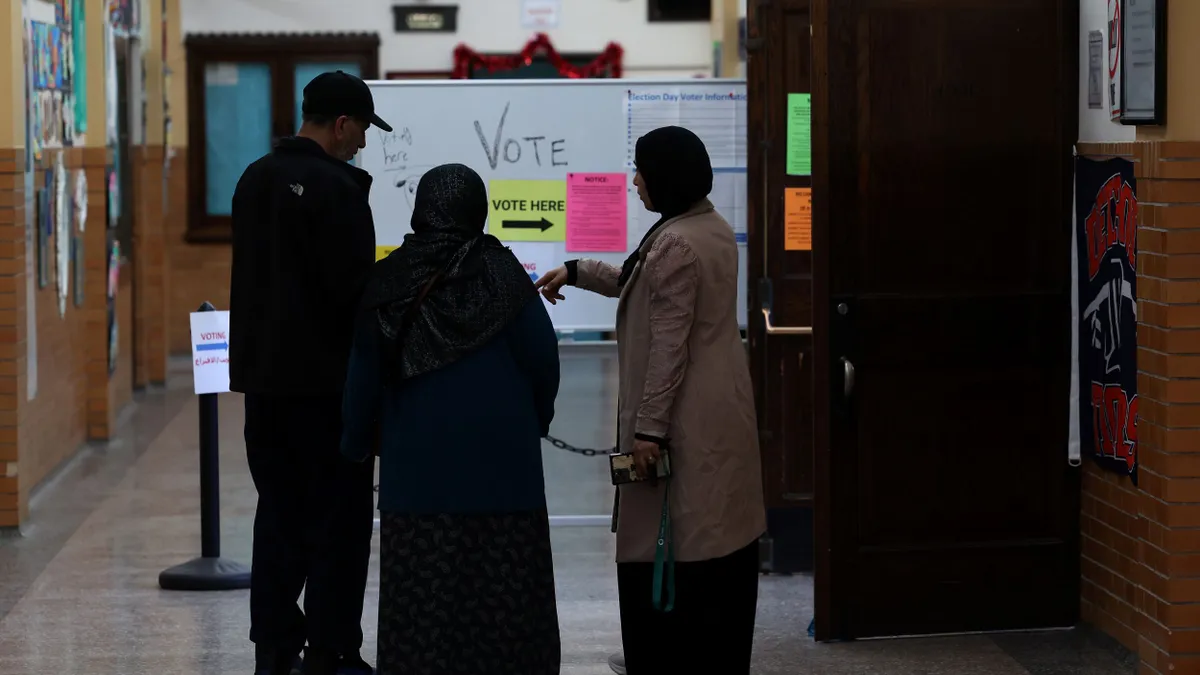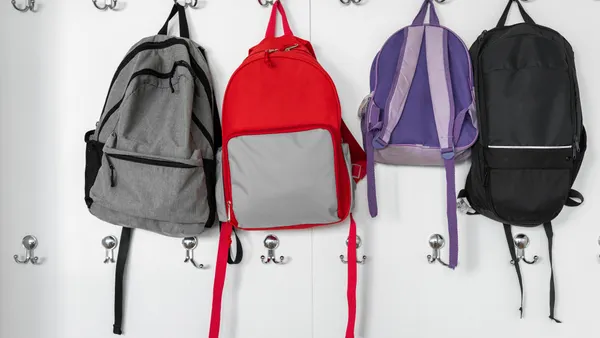With former President Donald Trump set to reenter the Oval Office next year, K-12 will likely face a slew of changes on key policy issues — from Title IX to education funding.
However, in addition to electing the next president, voters on Tuesday also cast their ballots on a number of state education issues. Here is how those state measures fared.
School choice comes up short
Some 2024 ballots were heavy on school choice in a number of states, including Colorado, Kentucky and Nebraska.
In Kentucky, nearly two-thirds of voters decided against Amendment 2, which would have amended the state constitution to allow for the General Assembly to provide state funding for non-public education. The issue divided political leaders in the state, with Democratic Gov. Andy Beshear and Republican U.S. Sen. Rand Paul staunchly on either side of the debate.
In Nebraska, 57.1% of voters decided to repeal a state law that provided $10 million a year in grants for families to send their children to private elementary and secondary schools.
On the ballot in Colorado, Amendment 80 would have amended the state constitution to include "each K-12 child has the right to school choice" and "parents have the right to direct the education of their children." That measure defined school choice as "neighborhood, charter, private, and home schools, open enrollment options, and future innovations in education.” It was rejected by a 52% vote.
Many school funding measures pass
School funding issues were also on the ballot in a handful of states, and voters decided in favor of some measures that would direct tax revenue to public schools.
Missouri's Amendment 2 passed by a narrow 50.1% vote, with 49.9% against the measure that legalizes sports betting and channels a 10% tax on betting revenue to public schools, higher education, and a gambling prevention fund.
Voters in the same state decided against another amendment, however, that would have used new revenue generated from the state's expanded riverboat casinos to support early childhood literacy programs for elementary public schools. Fifty-two percent of Missourans rejected the measure, which was projected to rake in an annual gaming tax revenue of $14.3 million, per the Missouri Secretary of State Jay Ashcroft's office.
In Colorado, Proposition KK passed by 54.2%. The measure imposes a 6.5% tax on firearms, proceeds of which would go to school safety and gun violence prevention programs, as well as mental health support for at-risk youth and veterans.
California voters said yes to Proposition 2, which authorizes $10 billion in bonds to build and repair K-12 and community college facilities. It would "give students safer schools," said State Superintendent Tony Thurmond in the days leading up to elections.
Voters elect some old, some new education leaders
Four states — Montana, North Carolina, North Dakota and Washington — elected state education superintendents, according to Education Commission of the States, a nonpartisan nonprofit that tracks education policy issues.
These were the results:
- North Carolina: Voters decided in favor of Democrat Maurice Green to succeed Republican Superintendent of Public Instruction Catherine Truitt.
- North Dakota: Voters cast their ballots for Republican Kirsten Baesler to serve another four years as state superintendent, a position she's held for more than a decade since 2012. Baesler is the longest-serving chief state school officer, per ECS.
- Montana: Republican Susie Hedalen defeated Democrat Shannon O'Brien.
- Washington: Washington is still counting its votes, however, Democratic leader Chris Reykdal — who led schools in one of the first states to be affected by the pandemic — will likely get elected for a third term as the state's superintendent of public instruction, according to early results reported by local outlets.
Gubernatorial races, which can drastically impact education policy, were also on the ballot in 11 states. Of those states, four give the governor the power to appoint the chief state school officer, and 10 give the governor power to name at least one member of the state board of education.
Out of the four states — Delaware, Indiana, New Hampshire and Vermont — that give the governor power to appoint the state superintendent, Delaware elected Democrat Matt Meyer, while the remaining states chose Republicans Mike Braun, Kelly Ayotte and Phil Scott.
Correction: A previous version of this story misstated California's Proposition 2 funding level. The story has been updated.












